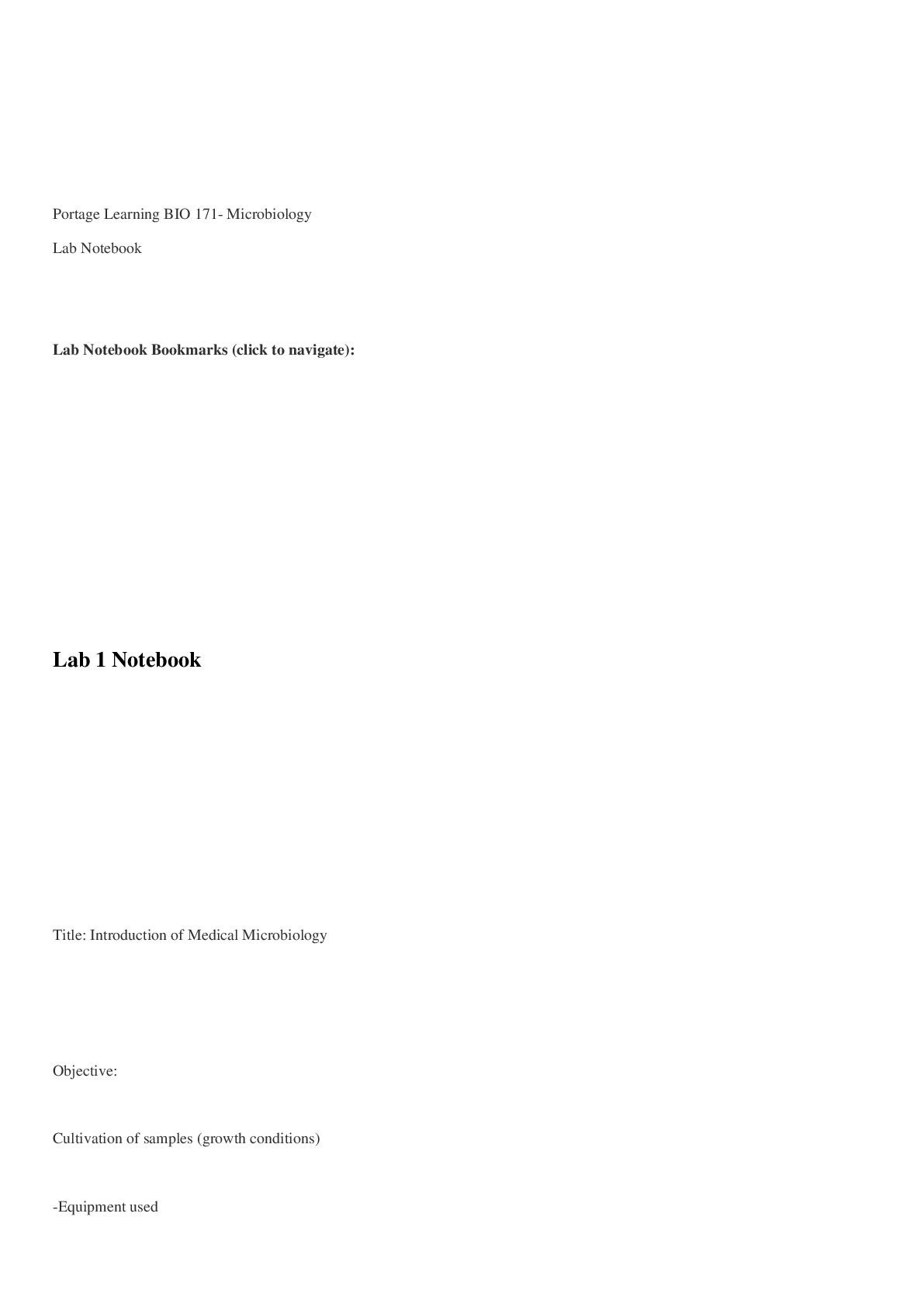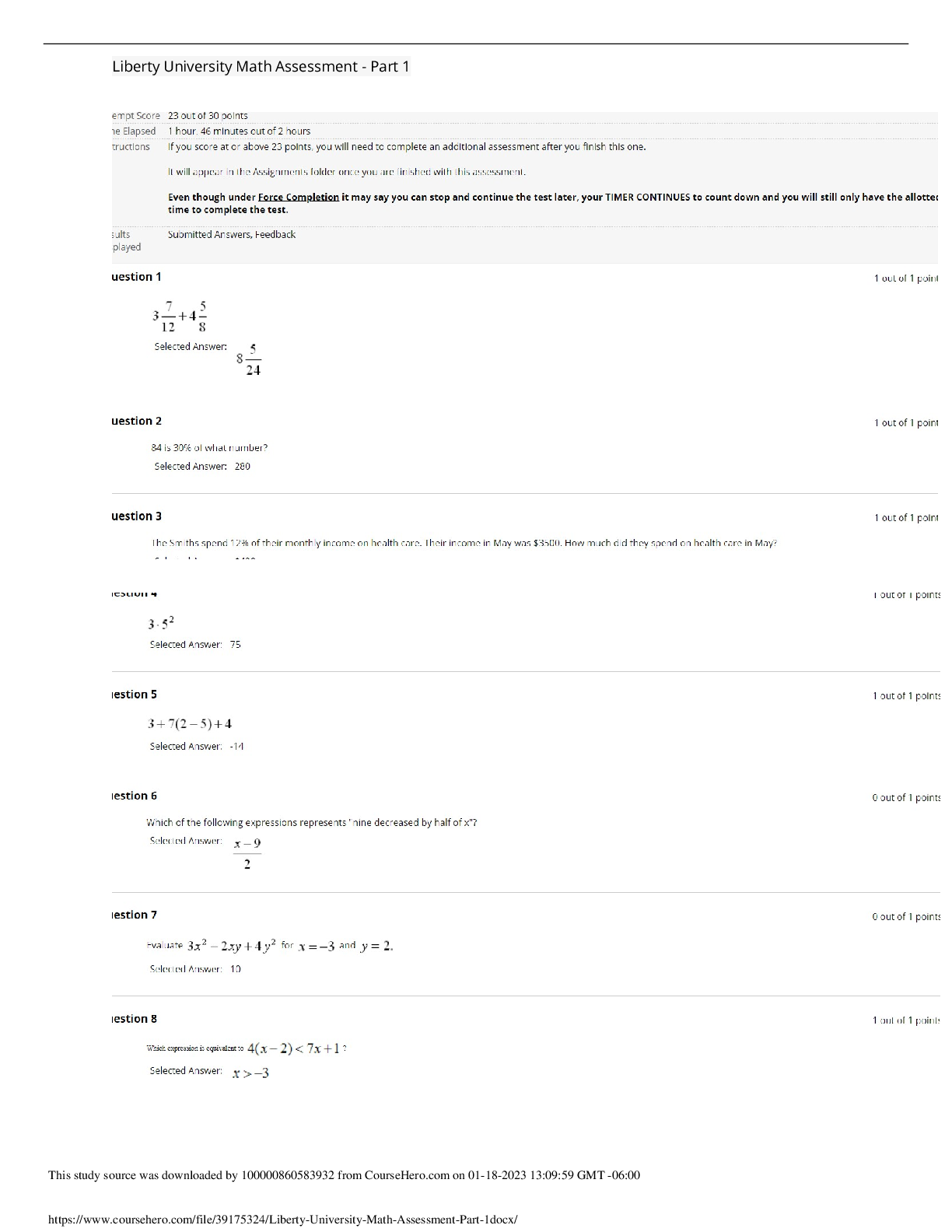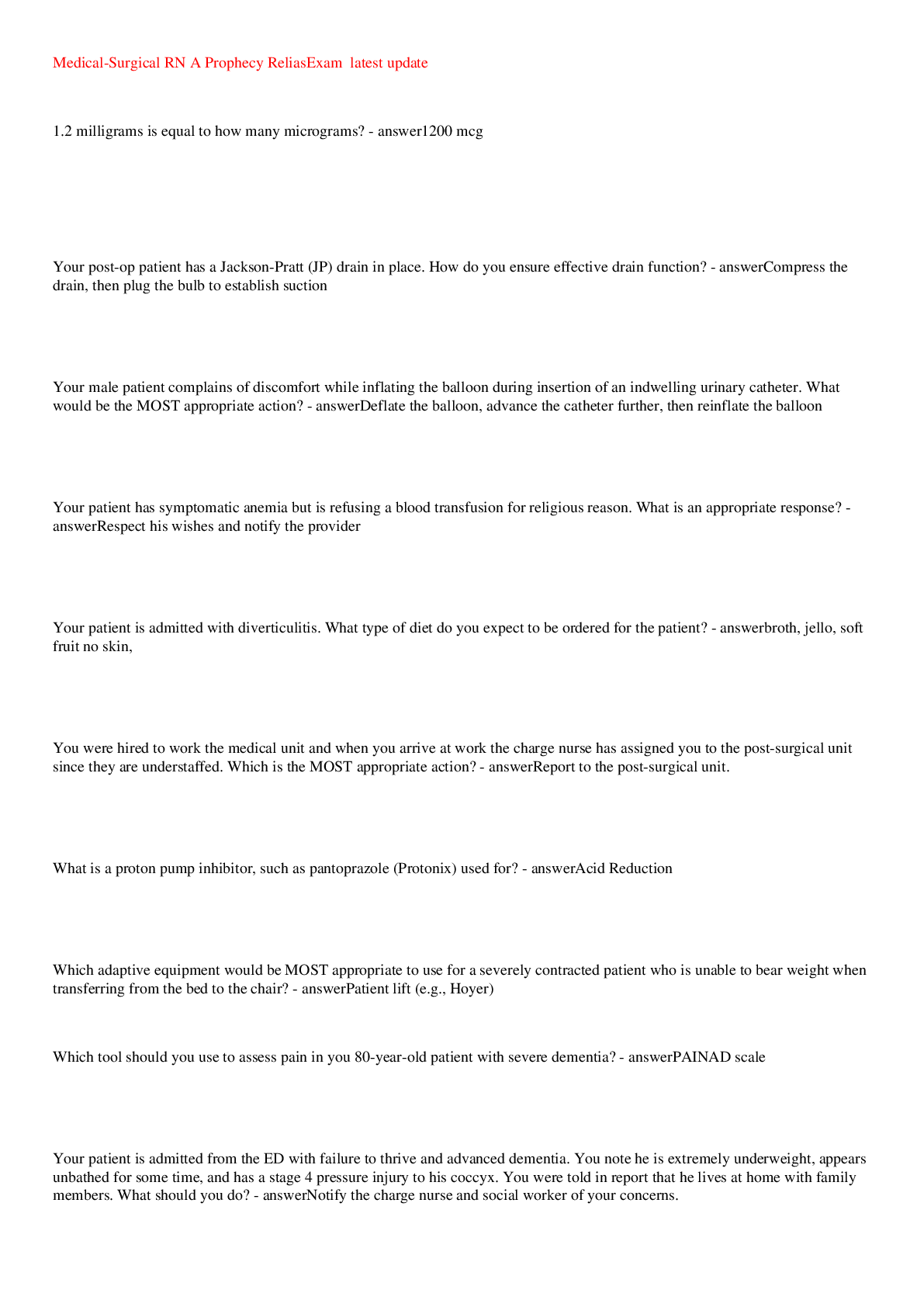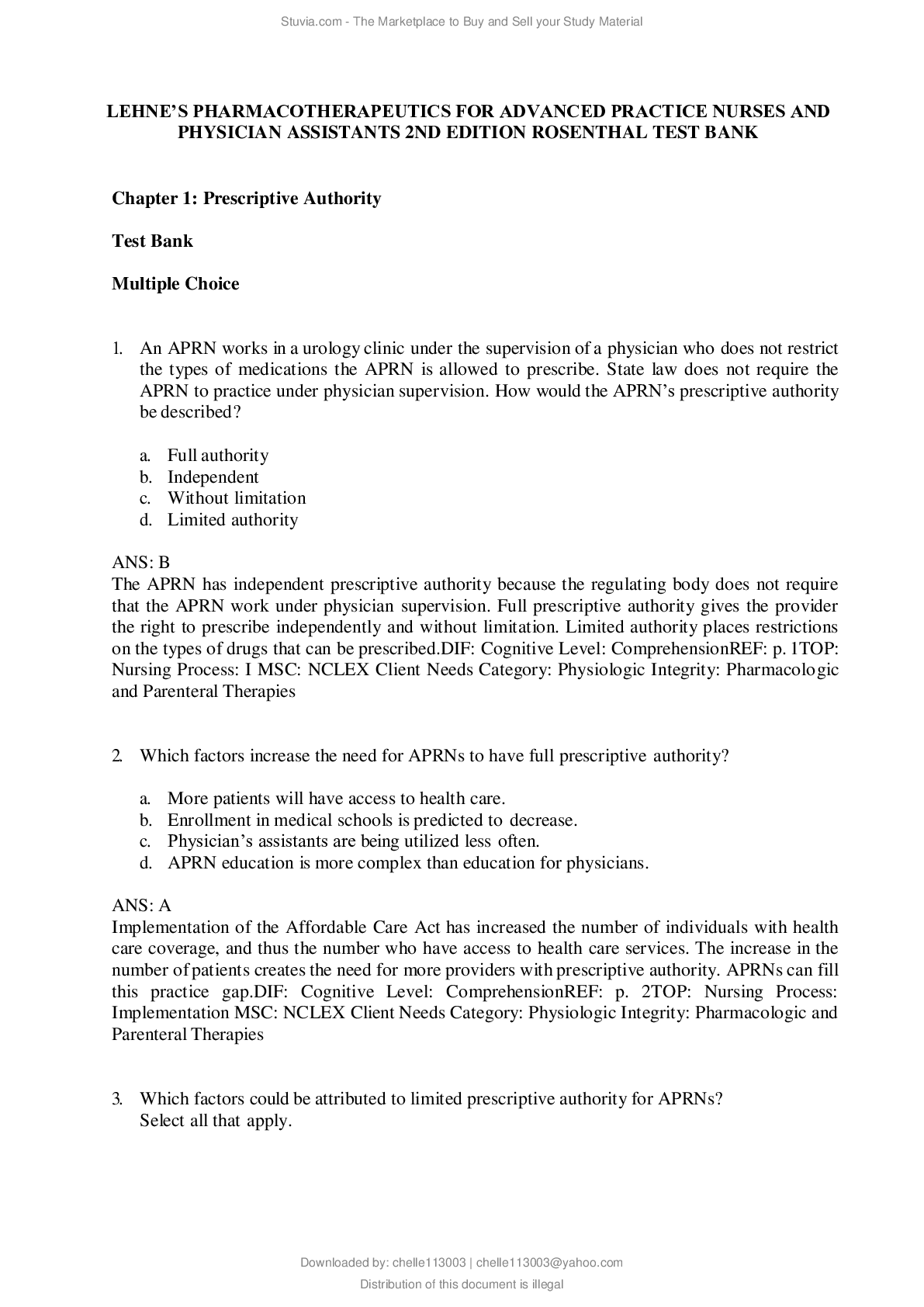Health Care > EXAM > BIOD 171 - Microbiology with Lab Syllabus_06182020. (All)
BIOD 171 - Microbiology with Lab Syllabus_06182020.
Document Content and Description Below
Course Description: A systematic examination of the microbial world, with an emphasis on pathogens. Topics covered include morphology, physiology, and genetics as well as the metabolic and enzymatic ... reactions associated. Strategic techniques for the growth, isolation and visualization of microbes are included as are microscopic and diagnostic methods. The causative agents and treatment strategies of various pathogens are emphasized. Viral composition, replication and the associated disease states are also covered in detail. The laboratory component of this course is delivered using virtual labs and interactive simulations with detailed instruction and demonstrations from an experienced microbiologist. * Portage Learning college courses are offered by Geneva College, which is regionally accredited by the Middle States Commission on Higher Education. Portage Learning is included in the College’s Department of Professional and Online Graduate Studies; courses are delivered through the PortageLearning.com platform. CLAUSE Course Outcomes: As a result of this course experience a student should be able to: • Describe the basic building blocks of life • Evaluate the differences between prokaryotic and eukaryotic cells • Explain cellular components (organelles) and their respective functions • Describe the biochemical processes of microbial metabolism • Outline the various sources and strategies for cells to obtain and utilize energy • Explain the vast role of enzymatic actions and mechanisms within microbial metabolism • Describe different types of microscopy including bright field, dark field, fluorescence and electron. • Explain the variety of staining techniques used within microscopy including simple staining, gram staining, acid fast staining, and differential staining. • Evaluate microbial growth within a laboratory including selective vs differential techniques • Define the control of microbial spread in the laboratory and other public areas • Describe the strategies for isolating and obtaining a pure microbial culture • Outline real-world scenarios for practicing safe and accurate microbial cultivation • Describe the function of normal flora • Define the classifications of microbial diseases • Identify and describe various microbial diseases which affect all systems of the body • Describe viral composition, types and strategies used for viral replication • Describe the nature of diseases caused by viral infections, the routes of transmission and treatments available. *Please see the Module & Lab Topics section below for expanded course outcomes. Lab Outcomes: As a result of this laboratory experience, students should be able to: • Practice safe procedures within a laboratory and with all equipment • Identify and explain various microbes under a microscope and discuss their properties • Identify and explain various staining techniques used in the laboratory • Identify and explain various plating techniques used in the laboratory • Identify and explain various diagnostic tests used in the laboratory *Each of these BIOD 171 student learning outcomes is measured: Directly by: (1) Module application problems (with instructor feedback) (2) Module exams (3) Lab reports and lab exams (4) Cumulative final exam Indirectly by an end of course student-completed evaluation survey [Show More]
Last updated: 2 years ago
Preview 1 out of 42 pages

Buy this document to get the full access instantly
Instant Download Access after purchase
Buy NowInstant download
We Accept:

Reviews( 0 )
$10.50
Can't find what you want? Try our AI powered Search
Document information
Connected school, study & course
About the document
Uploaded On
Aug 14, 2022
Number of pages
42
Written in
Additional information
This document has been written for:
Uploaded
Aug 14, 2022
Downloads
0
Views
73












